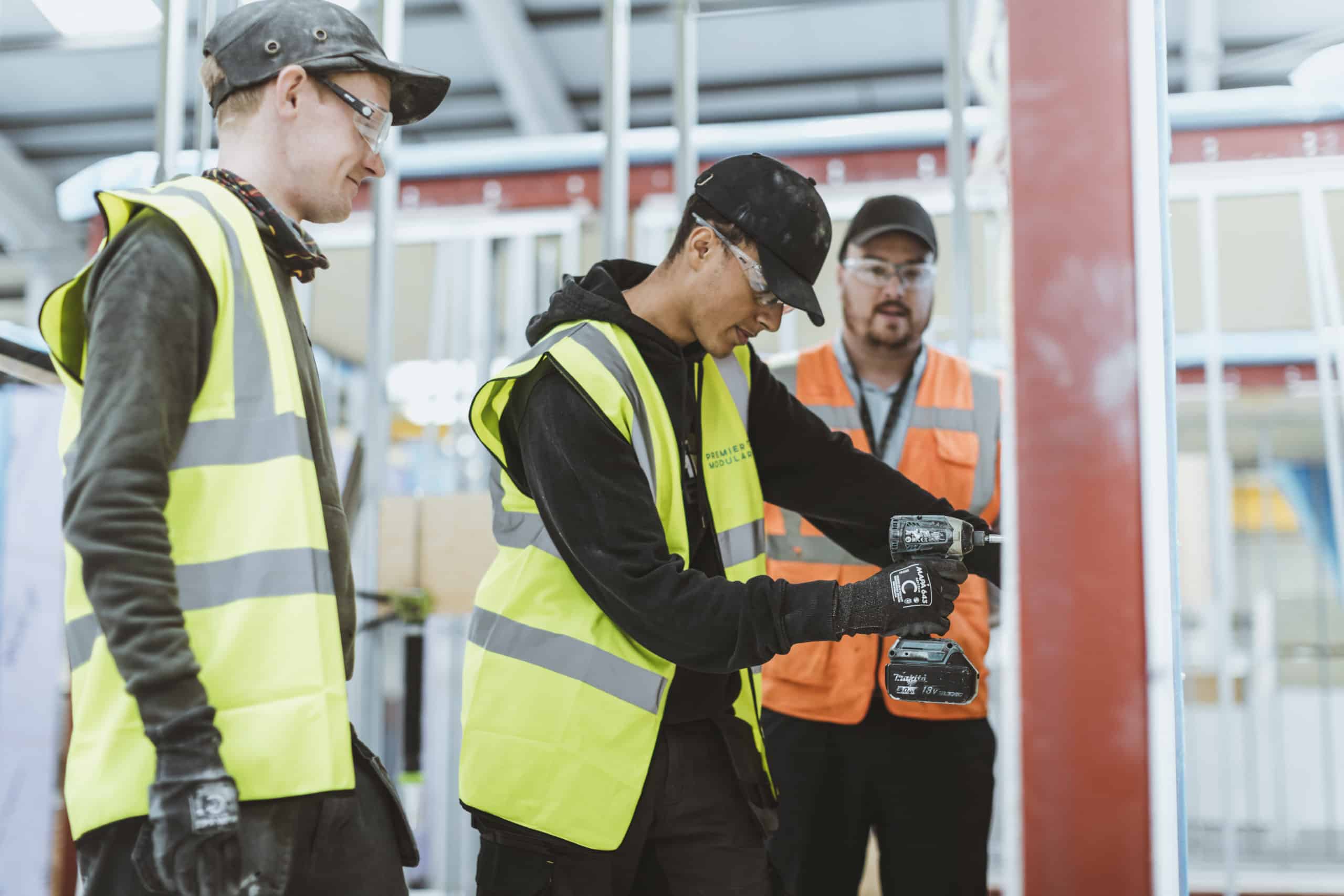The recruitment and upskilling of new talent remain high priorities for the construction and manufacturing industries, as companies look to fill vacancies created by an ageing workforce. Growing interest in tech-focused job opportunities is only intensifying competition for top talent, with younger generations naturally veering towards roles in web development, IT and software engineering.
As the UK evolves into one of Europe’s leading technological hubs and the popularity of such professions rises, it is increasingly important for the construction and manufacturing industries to promote the benefits of trade-based roles to prospective employees. Advertising apprenticeship opportunities is key to this, and can be achieved by engaging with young people, parents and educators early on to highlight the breadth of career opportunities available to young people – tech-focused roles included.
Broadening career horizons
Widespread retirement and the limited availability of skilled labour is giving rise to programme delays, high agency fees and difficulties satisfying growing service demands in many trade-centred industries. A report from the Construction Skills Network showed that by 2027, an additional 225,000 workers will be required to keep up with public and private sector demands.
One effective solution to this dilemma is for companies to prioritise apprenticeship schemes in their recruitment strategy. Apprentices can be trained in a number of trades and roles within the construction and manufacturing industries and discover preferences for jobs they may not have previously considered, such as offsite manufacturing operatives. Communicating the stability and opportunities that come with apprenticeships to young people in schools and careers fairs is therefore a necessity for companies.
Apprenticeship opportunities are particularly varied in the offsite manufacturing and construction field. Individuals can be trained in a myriad of skills, from design and procurement to fitting wall partitions or timber cladding. At Premier Modular, apprentices receive bespoke training that is customised to the business area they wish to specialise in – a mutually beneficial relationship that enables apprentices to progress in their areas of interest and allows the company to reinforce its workforce with specialists.
Tackling the stigma
Whilst apprenticeship schemes are evolving and becoming more popular, misconceptions around ‘cheap labour’ still exist within the construction and manufacturing industries. Contrary to common opinions, apprenticeships in these fields are not exclusively focused on traditional trade skills and have advanced to focus on different areas, such as computer-aided design (CAD). At Premier, three of the company’s current apprentices were supported in passing basic and intermediate CAD courses in their first six weeks on the job – opening up potential career pathways for their pursuit.
To dispel views that construction and manufacturing apprenticeships are ‘cheap labour’, companies need to have a greater physical presence in schools to ensure pupils understand the paths available to them. Delivering careers fair presentations and similar proactive measures will help companies to establish a reputation among students and institutions alike. This can be amplified by providing work experience opportunities to younger school students to provide an idea of the career paths they can take prior to them making career decisions further down the line.
Reaching the right audience
As technological advancements open up enticing career opportunities for young people, apprenticeship schemes will be pivotal for showing students the many options available to them in trade-based industries. Early engagement with schools will allow construction and manufacturing companies to glean what students want and need from their careers and promote the fulfilling pathways they can follow.
Frequent collaboration with educational stakeholders, parents, parent-teacher associations and organisations, such as local Chambers of Commerce, will further help companies to understand student ambitions and make course adjustments that meet these needs.
Beyond this, companies should equally strive to maintain a positive working environment that allows current and future generations to thrive. Monthly reviews and progress reporting are pivotal to this, ensuring apprentice journeys are clear and supported.
With trade-based roles at risk of coming second to the glamour of the tech world, it is down to companies to showcase the rewarding careers up for grabs in construction and manufacturing.
To explore our current apprenticeship opportunities, talk to our team today.











